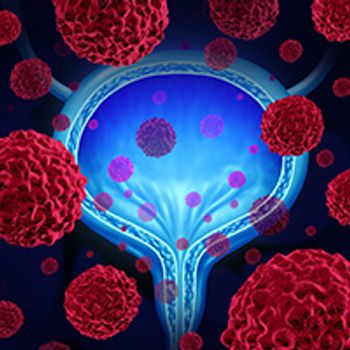
Prostate Cancer
Latest News
Latest Videos

CME Content
More News

The inter-tumoral complexity of metastatic castration-resistant prostate cancer poses a treatment challenge that may be tackled by examining clonal evolution.

The burst of translational research leading to PARP inhibitors in prostate cancer, along with imaging and diagnostic advances, has been a monumental evolution for the management of this disease.

Dan S. Childs, MD, discusses treatment with olaparib and abiraterone in metastatic castration-resistant prostate cancer.

Gautam Jha, MD, and Emmanuel Antonarakis, MD, discuss enrollment to the ECLIPSE trial in community and academic cancer center settings.

John Shen, MD, discusses the utility of ARX517 in patients with metastatic castration-resistant prostate cancer.

Our expert panel provide insightful discussion on the power of multidisciplinary expertise in advanced prostate cancer.

Drs. McKay and Shore discuss novel agents under investigation and their potential to target androgen receptor signaling and slow metastasis in patients with metastatic and castration-resistant prostate cancer.

The American Urological Association has released their 2024 clinical practice guideline on salvage therapy for prostate cancer.

Dan S. Childs, MD, discusses the evolution of the treatment armamentarium for patients with metastatic hormone-sensitive prostate cancer.

Neal Shore, MD, FACS, discusses current and ongoing research with radioligand therapy in patients with nonmetastatic castration-sensitive prostate cancer.

This segment delves into targeting the androgen receptor pathway and conquering treatment resistance for potential breakthroughs in managing advanced prostate cancer.

Expert perspectives on androgen receptor signaling and its role in fueling prostate cancer metastasis along with a whiteboarding animation depicting this process.

Swissmedic has accepted for review a marketing authorization application seeking the approval of Piflufolastat (18F) for prostate cancer.

Jun Gong, MD, discusses the significance of the phase 3 EMBARK study of enzalutamide in nonmetastatic castration-sensitive prostate cancer.

Drs. Shore & McKay discuss treatment selection for metastatic & castration-resistant prostate cancer, the current landscape, and key factors guiding personalized treatment decisions.

GU medical oncologist Dr. Rana McKay and urologist Dr. Neal Shore explore how predictive biomarkers and genetic testing are informing risk assessment and guiding personalized treatment decisions in clinical practice

Neal Shore, MD, FACS, discusses the implications of the FDA approval of enzalutamide for patients with nonmetastatic castration-sensitive prostate cancer.

Neal Shore, MD, FACS, discusses the phase 3 EMBARK study of enzalutamide in patients with nonmetastatic castration-sensitive prostate cancer.

John Shen, MD, discusses the phase 1/2 APEX-01 trial of ARX517 in metastatic castration-resistant prostate cancer.

BXCL701 has been granted fast track designation for select patients with metastatic small cell neuroendocrine prostate cancer by the FDA.

Radiographic and clinical progression-free survival may be surrogates for overall survival in hormone-sensitive prostate cancer clinical trials.

Apalutamide plus androgen deprivation therapy improved prostate-specific antigen progression-free survival in castration-sensitive prostate cancer.

Summarizes the main points and benefits of multidisciplinary prostate cancer care.

Samuel U. Takvorian, MD, MS, discusses the evolution of regulatory decisions regarding the use of PARP inhibitors for patients with prostate cancer.

HPN328, was well tolerated and elicited responses in patients with neuroendocrine prostate cancer and other neuroendocrine neoplasms.












































